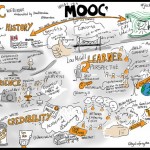The new year is one of the busiest times in the calendar for people looking for inspiration, exploring change and opening at least one eye to new jobs.
I spent most of 2013 talking about talent and the value of our people as our number one differentiator. I will kick off 2014 by helping integrate a division into our business and welcoming a few new people into my team, and with technological change increasing its influence on our work and home lives, it is important to maintain focus on our talent pool.
One of the last presentations I delivered in 2013 was at the cool offices of ITV, thanks to Andy Kyriacou who set up the event. I was inspired by the people who work at ITV but most importantly by how engaged they all were.
The CEO at ITV, Adam Crozier, the man that led much of the cultural change made in the last few years there, once said:
“Silver bullets rarely exist – when great things happen, they happen because of good people, teamwork, fantastic amounts of hard work and a giant dose of luck.”
So this has become my chief principle for 2014: look after our people and create the theatre for them to deliver, for they are the best thing we’ve got.







